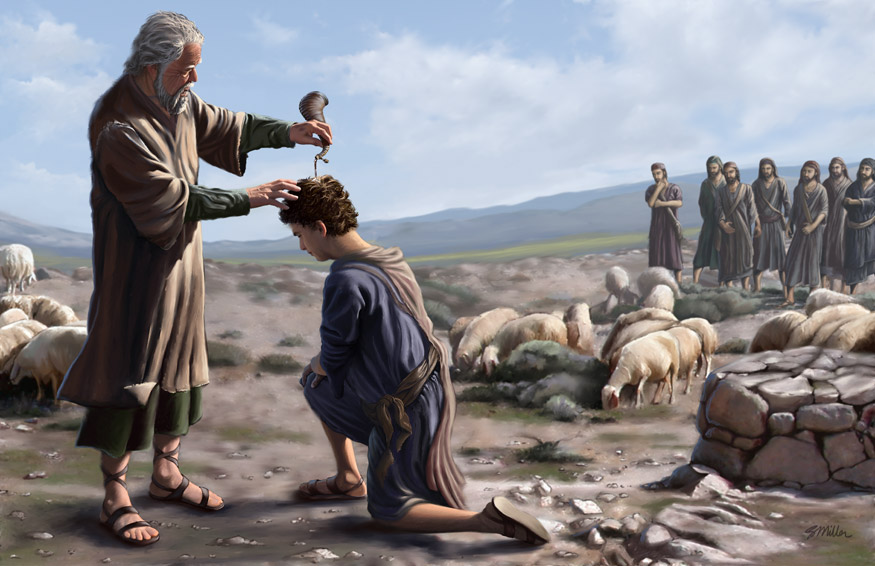To accompany your Come Follow Me study for June 13-19
In addition to reading these prescribed chapters, you may enjoy:
- Reading the corresponding material from the Institute student manual found in the online Gospel Library
- Reading the remaining chapters of 1 Samuel, to get the “rest of the story.”
- Watching the video Come Follow Me 2022 LDS (June 13-19) Samuel 8-18 | Faith Conquers Giants at https://www.youtube.com/watch?v=O0HoHER5W-c
If you would enjoy seeing a Kahoot game related to this material which you could use for your own amusement or with your family or class, click here: https://create.kahoot.it/share/1-samuel-8-10-13-15-18/8f4455cf-3c15-4ab0-a8b1-f44618f68a21
Points to Ponder in 1 Samuel 8-10, 13, and 15-18
1. What do you consider the five most important points to be learned from 1 Samuel 8?
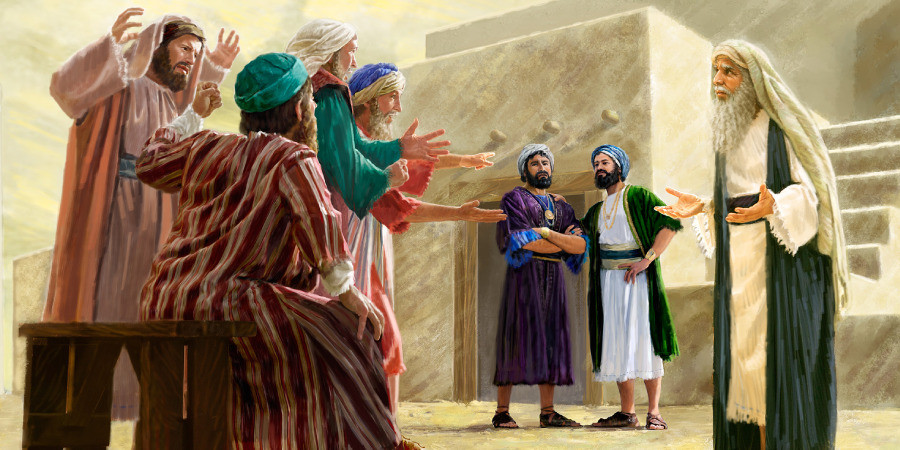
2. What do you consider the major principle to be learned from 1 Samuel 9?
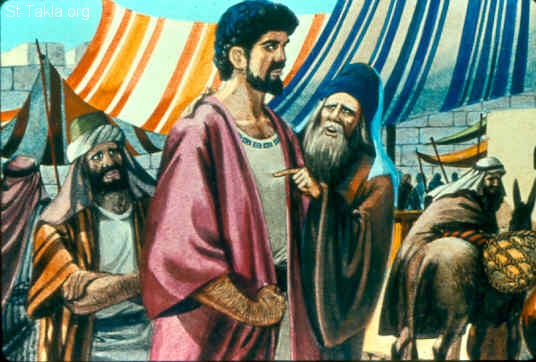
3. What do you consider the three major points the author of 1 Samuel 10 would want us to remember from that chapter?
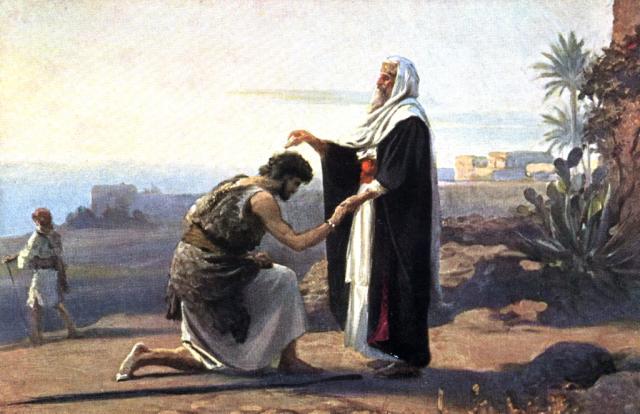
4. What would you think are the two most important points of 1 Samuel 13?
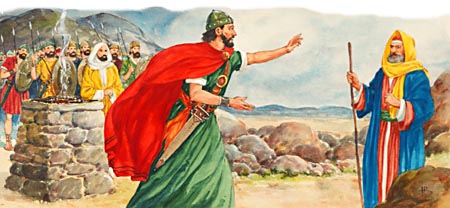
5. What three points stand out to you most in 1 Samuel 15?
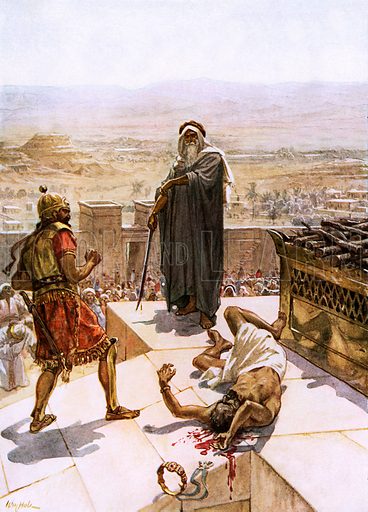
6. What stands out to you most in 1 Samuel 16?
7. 1 Samuel 17 gives us a great example of ____________.
8. What points most stand out to you in 1 Samuel 18?
9. What were the underlying reasons the Israelites wanted a king rather than perpetuate the system of judges?
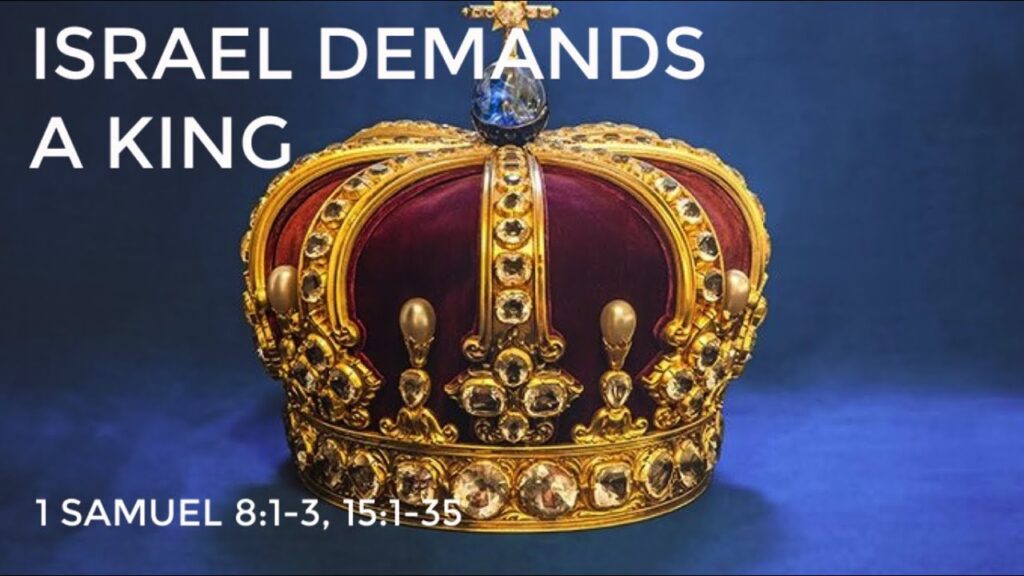
10. Why did the Lord tell Samuel to go ahead and appoint a king for them? Why didn’t He just say no? What important lesson can we learn from this?
11. How could someone who started off so good as Saul so quickly change? What applications can we make of this in our own lives?
12. What was wrong with Saul’s offering a burnt offering to the Lord? Lehi never got into trouble for doing so. What was the difference? What basic Latter-day Saint doctrine is well taught by this story?
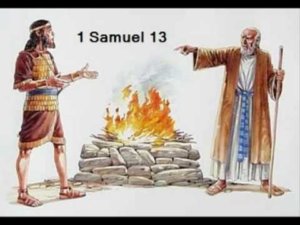
13. What would be modern instances of the same mistake Saul made in chapter 15, which led Samuel to teach that “to obey is better than sacrifice”?
14. What is the significance for us of the change which David’s harp playing made in Saul’s disposition?
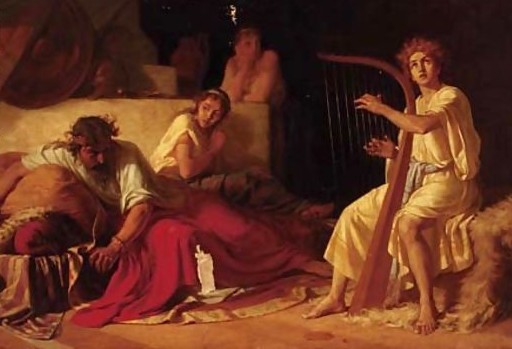
15. Why is the story of David and Goliath such a favorite among Bible readers? What details did you see in the story this time that you may have missed before?
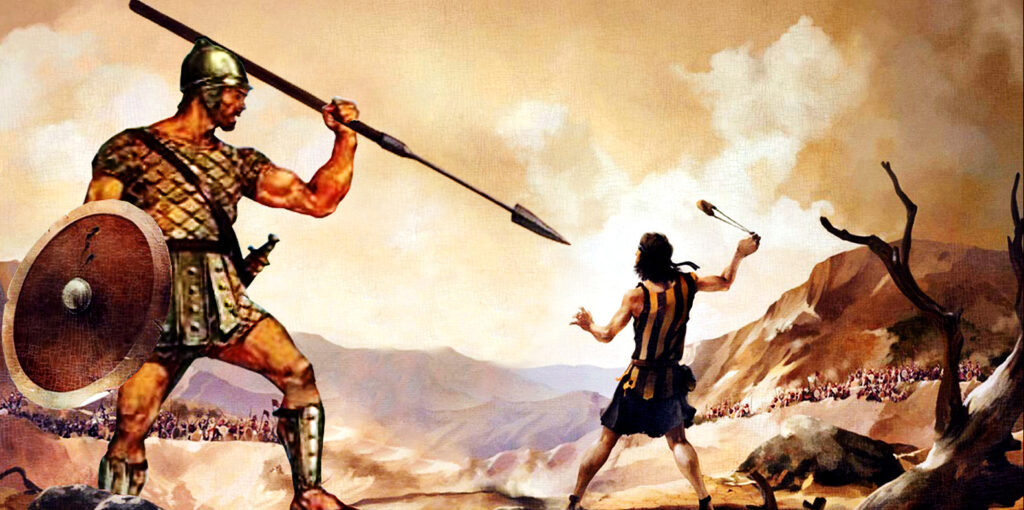
Possible Answers to Points to Ponder in 1 Samuel 8-10, 13, and 15-18
1. What do you consider the five most important points to be learned from 1 Samuel 8?
Perhaps:
- Even good parents can have wayward children.
- Theocracy is superior to monarchy.
- The Lord is slow to answer the prayers of the disobedient.
- There are dangers in wanting to be like everyone else.
- If we pray persistently, forgetting to say “Thy will be done,” we may get what we’ve prayed for, even if it’s not good for us.
2. What do you consider the major principle to be learned from 1 Samuel 9?
Perhaps that the Lord reveals Himself to His prophets, who can show us the way to go.
3. What do you consider the three major points the author of 1 Samuel 10 would want us to remember from that chapter?
Perhaps:
- God can change one’s heart.
- Ordinary members can have the gift of prophecy.
- Humility is becoming in a leader.
4. What would you think are the two most important points of 1 Samuel 13?
Perhaps:
- The importance of strictly obeying the Lord’s commandments as given through His earthly leaders.
- The need of proper authority in order to perform sacred ordinances.
5. What three points stand out to you most in 1 Samuel 15?
Your choice. Mine might be:
- Obedience is better than sacrifice.
- Stubbornness is a form of idolatry.
- There are dangers in submitting to peer pressure.
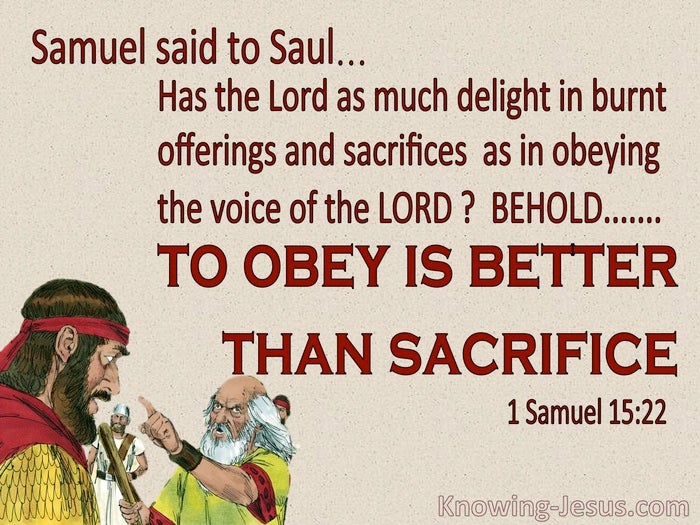
6. What stands out to you most in 1 Samuel 16?
To me it is:
- The Lord judges us on what’s inside, not on outward appearances. We should do the same.
- Music has power to bring the Spirit.
- Some Biblical passages are in need of revision. For example, Joseph Smith corrected 1 Samuel 16:14 to clarify that the evil spirit which troubled Saul was not from the Lord.
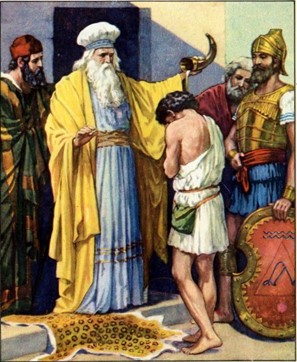
7. 1 Samuel 17 gives us a great example of ____________.
Possible answers would include
- Courage
- Faith and works
- The Lord’s protection of the righteous.
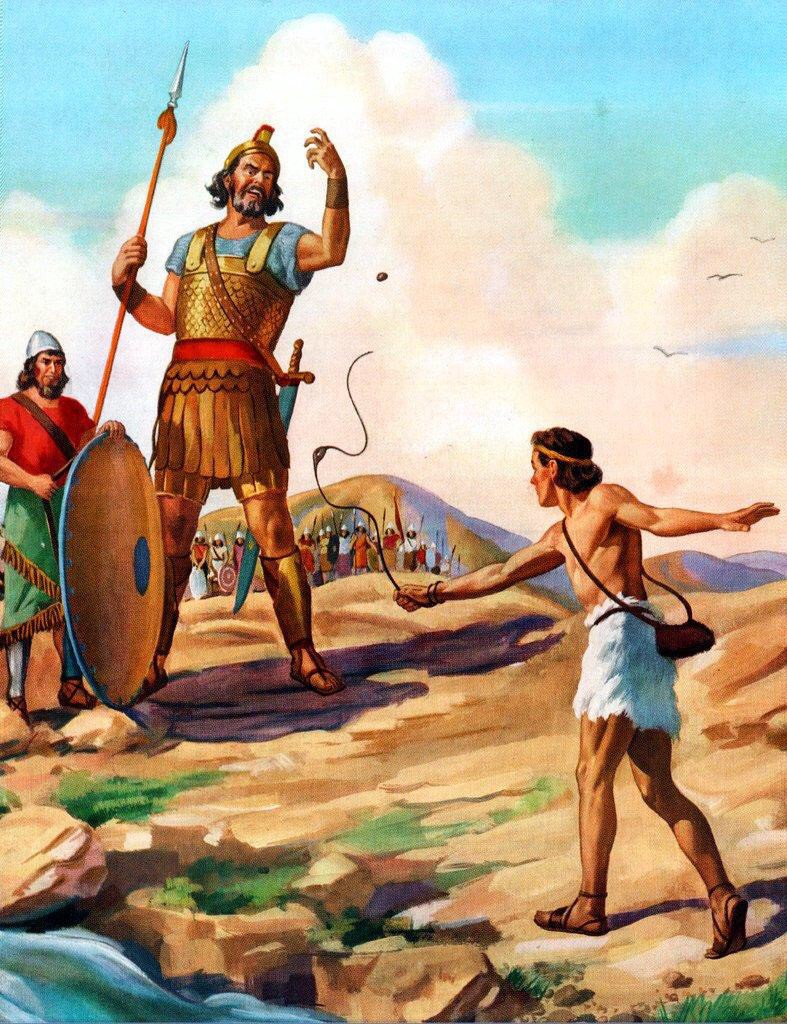
8. What points most stand out to you in 1 Samuel 18?
To me it would be:
- Jonathan’s great love for David, in spite of the fact that David, not Jonathan, would succeed Jonathan’s father as king.
- The Lord’s protection of the righteous David.
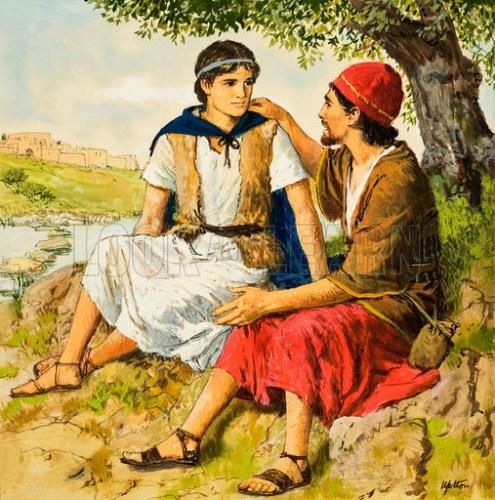
9. What were the underlying reasons the Israelites wanted a king rather than perpetuate the system of judges?
Reasons both spoken and unspoken seem to have been:
- Samuel was old and his sons were wicked.
- They wanted to be like the other nations around them.
- They wanted to avoid personal responsibility.
- They rejected God, His laws, and the blessings of freedom He wanted them to enjoy.
10. Why did the Lord tell Samuel to go ahead and appoint a king for them? Why didn’t He just say no? What important lesson can we learn from this?
God grants His children agency and sometimes lets them learn the hard way by giving them what they ask for. We thus need to be very careful what we pray for and remember to say or at least imply, “Thy will be done.”
11. How could someone who started off so good as Saul so quickly change? What applications can we make of this in our own lives?
Evidently, pride replaced the humility with which Saul started. His military success and the praise and admiration of the people went to his head, and the “new heart” with which the Lord had initially blessed him changed once again, all too quickly. We must ever be on guard against similarly becoming obsessed with the praise of men and ambition for worldly success.
12. What was wrong with Saul’s offering a burnt offering to the Lord? Lehi never got into trouble for doing so. What was the difference? What basic Latter-day Saint doctrine is well taught by this story?
Saul had no authority to offer such a sacrifice. Only those of the tribe of Levi held the priesthood at the time, and Saul was from the tribe of Benjamin. Missionaries could use this story in helping those they teach understand the need for priesthood authority in order to officiate in the name of God. Joseph Smith taught that ancient prophets all held the Melchizedek Priesthood and were ordained by God Himself. This evidently was the case with Lehi, who was from the tribe of Manasseh. Book of Mormon priesthood holders all operated under the authority of the Melchizedek Priesthood. There is no evidence of the Aaronic or Levitical Priesthood among them. The “priests and teachers” who were ordained among the Nephites were those who held the priesthood and those who taught, not holders of the Aaronic Priesthood offices designated by those titles in the Church today.
13. What would be modern instances of the same mistake Saul made in chapter 15, which led Samuel to teach that “to obey is better than sacrifice”?
Examples could include:
- Wanting to pay “tithing” by contributing to good causes of our own choice rather than giving directly to the Church.
- Children who spend the evening making valentines for their parents rather than cleaning their rooms as instructed.
- Giving large donations even to the Church but not keeping other basic commandments.
- Not attending prescribed meetings or turning in reports on time because we were “putting our family first” by going on outings with them.
14. What is the significance for us of the change which David’s harp playing made in Saul’s disposition?
We learn that good music can help us feel the Spirit of the Lord.
15. Why is the story of David and Goliath such a favorite among Bible readers? What details did you see in the story this time that you may have missed before?
We all like to see the likeable underdog prevail over the villain, and this is a classic example of it. Some interesting details that may often be overlooked include:
- David rose up early in the morning to fulfil his father’s instructions.
- David ran toward Goliath
- While it took only one stone to kill Goliath, David had four others along just in case.
